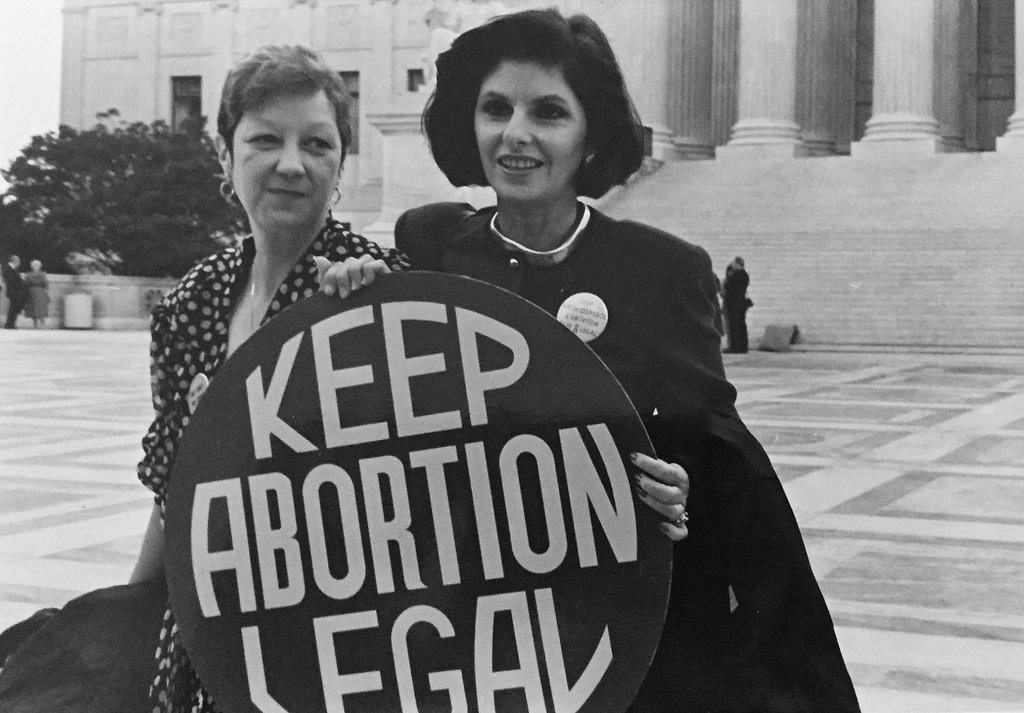Over-the-Counter Birth Control: Implications For Reproductive Health After Roe V. Wade

Table of Contents
Increased Access and Affordability
The potential for over-the-counter birth control offers significant advantages in terms of access and affordability. Making birth control readily available without a prescription could revolutionize reproductive healthcare, particularly for underserved populations.
Breaking Down Barriers to Contraception
Currently, many individuals face significant barriers to accessing contraception. These barriers include:
- High Costs: Prescription birth control can be expensive, even with insurance. Many individuals, especially those in low-income brackets, struggle to afford these essential medications.
- Logistical Challenges: Scheduling doctor's appointments, navigating insurance coverage, and obtaining prescriptions can be time-consuming and inconvenient, particularly for those in rural areas or with limited transportation.
- Insurance Requirements: Many insurance plans don't fully cover contraception, creating another financial hurdle.
OTC birth control could dramatically reduce these barriers:
- Reduced cost: Eliminating prescription costs would make birth control significantly more affordable for everyone.
- Elimination of insurance requirements: Access wouldn't hinge on insurance coverage.
- Increased convenience: Purchasing birth control would be as easy as buying other over-the-counter medications.
- Improved accessibility in rural areas: Access would no longer be limited by geographic location or the availability of healthcare providers. Affordable birth control would be within reach for a far wider segment of the population.
Expanding Options for Contraceptive Choice
The transition to OTC birth control could also lead to a broader range of options:
- Increased choice in contraceptive methods: The market could see an expansion beyond currently available prescription options, offering individuals more choices tailored to their individual needs and preferences.
- Potential for new formulations: The shift could spur innovation, leading to the development of new, more effective, and user-friendly contraceptive methods.
- Greater control over healthcare decisions: Individuals would have more control over their reproductive health choices without the need for a healthcare provider’s approval for each prescription refill. This autonomy is particularly crucial in states with restrictive reproductive healthcare laws. The availability of different types of birth control pills, as well as emergency contraception, would be significantly improved. Access to long-acting reversible contraception (LARC) methods, while potentially not initially available OTC, may also be impacted over time.
Potential Risks and Concerns
While the benefits of OTC birth control are significant, potential risks and concerns must be addressed.
Misinformation and Improper Use
The ease of access to OTC birth control necessitates robust educational campaigns:
- Importance of accurate information: Misinformation about the effectiveness and potential side effects of different birth control methods could lead to improper use and unintended pregnancies.
- Risk of incorrect dosage: Without proper guidance, individuals may not use the medication correctly, reducing its effectiveness.
- Potential for adverse effects: Individuals may not recognize or know how to address potential side effects.
- Need for clear instructions and warnings: Clear and comprehensive labeling, packaging, and educational materials are essential to ensure safe and effective use. The potential for improved birth control safety is directly correlated with the quality of educational materials accompanying the product.
Impact on Comprehensive Reproductive Healthcare
The focus on OTC birth control shouldn't overshadow the importance of comprehensive reproductive healthcare:
- Importance of integrated healthcare: Access to other reproductive health services, such as STI testing, counseling, and family planning services, remains crucial.
- Potential for reduced access to other reproductive services: If OTC birth control becomes the primary focus, access to these essential services could be unintentionally diminished.
- Need for continued access to healthcare professionals: While OTC options increase convenience, regular checkups and consultations with healthcare professionals remain vital for maintaining overall reproductive health.
Policy and Regulatory Considerations
The successful implementation of OTC birth control hinges on careful consideration of policy and regulatory frameworks.
FDA Approval and Regulation
The FDA approval process for OTC birth control is crucial:
- FDA approval process: Rigorous testing and evaluation are needed to ensure safety and effectiveness.
- Safety testing requirements: Thorough clinical trials are necessary to identify and mitigate potential risks.
- Labeling and packaging standards: Clear and accurate labeling is essential for consumers to understand how to use the medication safely and effectively.
- Post-market surveillance: Continuous monitoring is vital to detect any unforeseen issues. Pharmaceutical regulations must be carefully followed and actively enforced.
State-Level Legislation and Access
State-level laws and policies will significantly influence the accessibility of OTC birth control:
- State-level variations in access to healthcare: States with restrictive reproductive healthcare laws may face challenges in ensuring equitable access.
- Impact of state laws on reproductive rights: Existing state laws could either facilitate or obstruct the availability of OTC birth control.
- Potential legal challenges: The legality of OTC birth control could become a subject of legal battles in states with differing viewpoints on reproductive healthcare. Birth control regulations at the state level must be carefully considered in the process of nationwide distribution.
Conclusion
The shift towards over-the-counter birth control presents a complex scenario with significant implications for reproductive health in the post-Roe v. Wade era. While increased access and affordability are potential benefits, addressing concerns about misinformation, ensuring continued access to comprehensive healthcare, and navigating regulatory hurdles are crucial. Careful consideration of policy and regulatory frameworks will determine the ultimate impact of OTC birth control on reproductive autonomy and healthcare access. Continued dialogue and advocacy are essential to ensure that all individuals have access to safe and effective over-the-counter birth control options and the comprehensive reproductive healthcare they need. This includes supporting initiatives that promote accurate information about over-the-counter birth control and advocating for policies that expand access to affordable and comprehensive reproductive healthcare services. The future of over-the-counter birth control depends on responsible implementation and continued advocacy.

Featured Posts
-
 Ignoring High Stock Valuations A Bof A Supported Investment Strategy
Apr 24, 2025
Ignoring High Stock Valuations A Bof A Supported Investment Strategy
Apr 24, 2025 -
 California Gas Prices Soar Newsoms Plea For Oil Industry Cooperation
Apr 24, 2025
California Gas Prices Soar Newsoms Plea For Oil Industry Cooperation
Apr 24, 2025 -
 Tesla Q1 Financial Report Analyzing The Impact Of Public Relations
Apr 24, 2025
Tesla Q1 Financial Report Analyzing The Impact Of Public Relations
Apr 24, 2025 -
 Teslas Optimus Robot Navigating The Challenges Of Rare Earth Dependence
Apr 24, 2025
Teslas Optimus Robot Navigating The Challenges Of Rare Earth Dependence
Apr 24, 2025 -
 Lg C3 77 Inch Oled A Detailed Buyers Guide
Apr 24, 2025
Lg C3 77 Inch Oled A Detailed Buyers Guide
Apr 24, 2025
